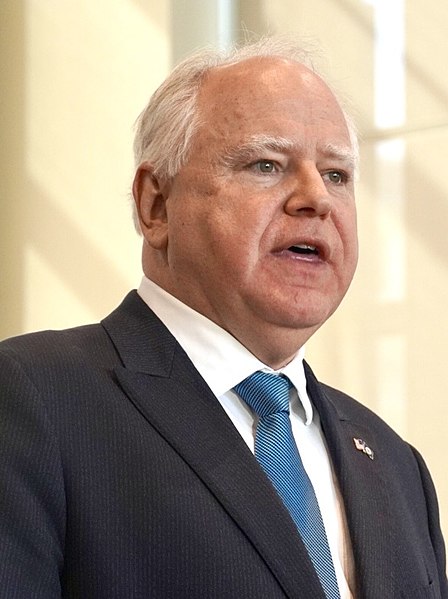As the political landscape in Detroit continues to evolve, the battle between Lauren Boebert and Tim Walz has become a focal point for discussions about the future of Congress. This dynamic showdown is not just about two candidates; it reflects broader themes that are reshaping American politics. The issues at stake go beyond local concerns, touching on national debates about representation, values, and governance. As voters prepare to head to the polls, the implications of this contest extend far beyond Michigan's borders.
The clash between Boebert and Walz symbolizes the ongoing struggle within the political arena over identity, ideology, and leadership style. While Boebert represents a more confrontational approach often associated with the rise of populist movements, Walz embodies a more traditional, establishment-oriented figure who emphasizes unity and bipartisanship. Their contrasting personas highlight the diverse perspectives vying for influence in contemporary American politics. In this context, Detroit serves as both a battleground and a bellwether for what lies ahead in Congress.
Political Rivalries in Detroit: A New Era
Lauren Boebert, known for her outspoken views and controversial statements, finds herself at odds with U.S. Rep. Tim Walz, who has carved out a reputation as a pragmatic legislator. Boebert's rhetoric frequently targets toxic masculinity, an issue she believes is central to current political discourse. Meanwhile, Walz focuses on practical solutions, aiming to bridge divides through dialogue and compromise. This contrast sets the stage for a compelling narrative in Detroit's political theater.
In their respective campaigns, both candidates have sought to capitalize on key issues affecting their constituents. Boebert leverages social media platforms like X (formerly Twitter) to amplify her message, often engaging directly with supporters and critics alike. Her approach resonates with those who feel disenfranchised by mainstream politics. On the other hand, Walz utilizes his experience as a former educator and military veteran to underscore his commitment to public service and community engagement.
Despite their differences, both Boebert and Walz acknowledge the importance of addressing crime rates and urban safety, particularly in cities like Detroit. However, their strategies diverge significantly. Boebert criticizes policies under Walz's administration, pointing to statistics such as Detroit's high murder rate, while Walz counters with data-driven initiatives aimed at reducing violence and fostering economic development. These exchanges illustrate the complex interplay between policy-making and political messaging.
Urban Challenges and Legislative Priorities
Roshan Rinaldi’s comments on X highlight the contentious nature of claims surrounding Detroit's crime statistics under Governor Tim Walz. While some posts suggest a correlation between Walz's leadership and rising criminal activity, investigations reveal a lack of substantiated evidence supporting these assertions. Such narratives underscore the challenges faced by policymakers in effectively communicating their achievements amidst misinformation campaigns.
For instance, allegations regarding Detroit having the highest murder rate in Minnesota serve as a case study in how misleading information can shape public perception. Critics argue that such claims distract from genuine efforts to address systemic issues impacting urban areas. By focusing on verifiable facts and collaborative approaches, lawmakers aim to build trust and foster meaningful change.
Moreover, Kamala Harris's appearance following Walz's speech in Detroit underscores the significance of partnerships across party lines. Her emphasis on kindness and inclusivity aligns with Walz's vision for progressive governance. Together, they advocate for policies designed to uplift marginalized communities and promote equitable opportunities for all residents.
Confronting Misinformation and Building Consensus
Jesse Ventura's critique of JD Vance's accusations against Tim Walz exemplifies the dangers posed by unfounded conspiracy theories. Vance's baseless claim of stolen valor drew condemnation from Ventura, who emphasized the importance of integrity and respect within military circles. This incident highlights the need for vigilant fact-checking and responsible journalism in today's polarized climate.
Similarly, Democratic Vice Presidential candidate Tim Walz's fundraising success in Denver reflects growing support for his campaign. His ability to connect with diverse audiences stems from his emphasis on kindness and collaboration. During his speeches, Walz frequently acknowledges the contributions of allies like Governor Jared Polis, reinforcing the value of teamwork in achieving shared goals.
Ultimately, the competition between Boebert and Walz transcends personal rivalries, offering valuable insights into the evolving dynamics of American democracy. As voters weigh their options, they must consider not only individual qualifications but also the broader implications of electing leaders committed to advancing justice, equality, and prosperity for future generations.

